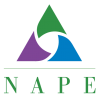Dec. 12, 2019 Network Meeting
Using the STEM Equity Program Rubric for Program Improvement
The IM STEM Workgroup on Effective Practices and Scaling released the STEM Equity Program Evaluation Rubric. This rubric is designed to help program administrators, designers, implementers and funders identify the critical attributes of a STEM program to determine the degree to which it is inclusive and supports access and success for students who historically have not engaged in STEM. This December 2019 IM STEM Network meeting shared the experiences that secondary and post-secondary educators have had using the rubric in their own work. If you are a state agency career and technical education (CTE) administrator the STEM Equity Program Evaluation Rubric could be used to inform your state’s Comprehensive Local Needs Assessment under Perkins V. If you are a program administrator or provider the rubric has value in helping you consider ways to improve your program to reach more diverse students. If you are a funder, the rubric can be used to help you evaluate how advanced your grant recipients programs are in reaching your equity goals.
Presenters:

Susan Thackeray, PhD, Assistant Professor, Technology Management, Utah Valley University, Orem, UT
Susan L. Thackeray is an Assistant Professor, Technology Management in the College of Technology and Computing at Utah Valley University (UVU). She has more than 20 years of demonstrated administrative leadership in industry and education that includes international and domestic higher education instructional design, distance learning development, usability testing, workforce development, and team organization/training. Thackeray is noted nationally for the innovative UVU Business Engagement Strategy Career Pathways model to prepare and transition students efficiently into the workforce. She has received multiple awards for innovation excellence and is currently the state lead for NAPE’s STEM Equity Pipeline Project. Thackeray holds a BS in digital media and a master’s degree in instructional technology from Utah State University. Susan received her doctorate at Northeastern University in Boston, with a research focus on underrepresented populations in STEM.

Daniel Horns, Professor of Geology and Associate Dean of the College of Science at Utah Valley University
Dr. Horns earned a B.S. in Geophysics from UCLA and a Ph.D. in Geology from UC Davis. Dr. Horns’ scientific work focuses on assessment of geologic hazards. His administrative work focuses on increasing the numbers of students pursuing science majors and careers, with particular attention to students from groups that are underrepresented in the sciences. Before joining UVU in 1997, Dr. Horns worked as a consulting geologist for Kleinfelder Engineering, where he worked on projects related to geologic hazards, water resources, and water quality.

Liz Andrus, Director, School Community University Partnership (SCUP) at Utah Valley University
Ms. Andrus earned her M.Ed. in Counseling and Guidance from Brigham Young University. Her career in education started in the elementary classroom. She joined UVU in 2005 as an adjunct professor and has been the Director of SCUP since 2009. SCUP is the home of UVU PREP, a seven-week summer math and science based curriculum program conducted on the campus of Utah Valley University designed to prepare junior high school students for future success in advanced studies leading to careers in STEM fields.

Snehal Bhakta, CTE Project Facilitator/Innovator Clark County School District
Snehal Bhakta worked in business and technology consulting for 15 years prior to entering the education space. When the opportunity presented itself for him to develop his own program at a Career & Technical Academy in Clark County School District(CCSD), he welcomed the opportunity to fuel his passion of helping others and working with tomorrow’s leaders. Currently, he is the Career & Technical Education Administrator of Clark County School District, the fifth largest school district in the country, ensuring Nevada’s future workforce is prepared for success. He has worked on projects related to increasing student and community participation with National Job Shadow Day, promotion/growth of Career & Tech Student Organizations, leading the #GirlsinTech and #GirlsinSTEM initiative within CCSD and continues to bring innovative technology practices to students, teachers, and administrators. In his free time, he enjoys watching movies, spending time with his daughter, and learning about anything related to technology.
 This material is based upon work supported by the National Science Foundation under Grant No. 1744472. Any opinions, findings, and conclusions or recommendations expressed in this material are those of the author(s) and do not necessarily reflect the views of the National Science Foundation
This material is based upon work supported by the National Science Foundation under Grant No. 1744472. Any opinions, findings, and conclusions or recommendations expressed in this material are those of the author(s) and do not necessarily reflect the views of the National Science Foundation
